Leading Through Budget Constraints: Two Superintendents Reimagine Engagement











In today’s political and fiscal climate, K-12 school superintendents are navigating more than spreadsheets—they’re navigating trust. Nearly 50% of U.S. superintendents are considering retirement due to pandemic fallout and ongoing community tensions.
Leaders like Dr. Kevin McGowan, Superintendent of Brighton Central School District (NY), and Jeanne Collins Deweese, former Superintendent of Rutland NE Supervisory Union (VT) and now an education leadership coach and public school consultant, choose connection over isolation in the budget process. Their approach is rooted in community engagement, transparency, and humility—core values that are increasingly important in public education.
In this Article
Beyond the budget forum
Traditional community forums, budget or otherwise, are often sparsely attended and no longer have the impact districts are looking for. “Hold a forum, two people show up if you’re lucky,”
Collins Deweese recalled. “There wasn’t a way to garner a large amount of feedback unless the vocal minority shows up at the board meeting.”
“The feedback that I got was so rich, and included statements like, ‘I’m so glad you asked. I’m so glad you’re listening.’ I left the COVID era with strong support from my community because of my communication skills.”
To broaden participation, both leaders turned to digital engagement tools like ThoughtExchange, allowing the quiet majority to weigh in, not just the loud few. During the COVID-19 pandemic, Collins Deweese used the platform to foster two-way communication. “The feedback that I got was so rich, and included statements like, ‘I’m so glad you asked. I’m so glad you’re listening,’” she said.
This kind of outreach changed the narrative. “I left the COVID era with strong support from my community because of my communication skills,” she noted. Decisions were no longer top-down mandates, but co-created solutions based on the community’s shared values—and her community responded to her leadership with trust and support.
Relatability over authority
Dr. McGowan echoes this shift in tone. For him, vulnerability and relatability have become central leadership tools. “You have a relationship with your community,” he said. “And if you communicate clearly with people—both listening and speaking—you’re likely to have greater success.”
Dr. McGowan points out that too often, district communication is overly formal or defensive. But when leaders speak plainly, as the neighbors and parents they often are, people are more likely to listen. “People are much more likely to want to be a part of the conversation when you're speaking to them in a normal, casual manner rather than with platitudes,” he said. “And being more relatable builds trust.”
This people-first mindset also means inviting input before leaders make decisions, then showing how community feedback shaped the outcome. “In our budget presentation, we share the priorities we gleaned from ThoughtExchange and forums,” Dr. McGowan explained. “It’s connecting that conversation to the decisions we make.”
Trust through transparency
Research supports this collaborative approach. A 2023 study by the Edunomics Lab at Georgetown University highlights that districts that link budget decisions to community-identified priorities see higher levels of public support—even in difficult fiscal years.
The reason? Process matters. Harvard Business Review compiled study findings revealing that “individuals are most likely to trust and cooperate freely with systems—whether they themselves win or lose by those systems—when fair process is observed.”
“In our budget presentation, we share the priorities we gleaned from ThoughtExchange and forums. It’s connecting that conversation to the decisions we make.”
Transparency, then, is not just a buzzword; it’s a strategy. “If you're transparent about your thought process, about the conditions, and about what you're hearing, people will accept what you're saying,” Collins Deweese said. Dr. McGowan added, “Clarity is kindness. Just be upfront with people and they are much more likely to trust you—even if they don’t agree.”
Shifting the focus from conflict to collaboration
Both leaders understand the pressure to hunker down during difficult times. “It’s tempting,” Dr. McGowan admitted. “But that has a dramatic impact long term. If you move on from these situations by just making decisions in isolation, the community’s anger over the content of the decision becomes anger over you.”
Instead, they invite conversation with their community—even if it’s uncomfortable. “The most powerful words we’re using these days are: ‘Tell us more,’” Dr. McGowan said. Whether it’s about budget cuts, staffing, or systemic concerns, those words shift the dynamic from defensive to collaborative.
“The most powerful words we’re using these days are:
‘Tell us more.’”
Collins Deweese emphasized this shift too: “People are not holding back on their criticism these days, but if you build that relationship before they show up at the board meeting, you’ll have a much greater chance of success.”
A new model for educational leadership
Ultimately, both McGowan and Collins Deweese champion a leadership style grounded in curiosity, humility, and respect. “I’m fond of saying, ‘I don’t know.’ I’m fond of not being the smartest person in the room,” Dr. McGowan said. “It’s developing collective and shared responsibility. It’s not all on you.”
That mindset may be the key to weathering the storm of public education today. By choosing to engage—not retreat—these leaders are proving that budget decisions aren’t just about numbers. They’re about relationships.
As Collins Deweese summed it up, “Take the time to stop and listen, get past the assumptions, and try to understand the impact. It makes the decision that much more thoughtful and useful for the community.”





